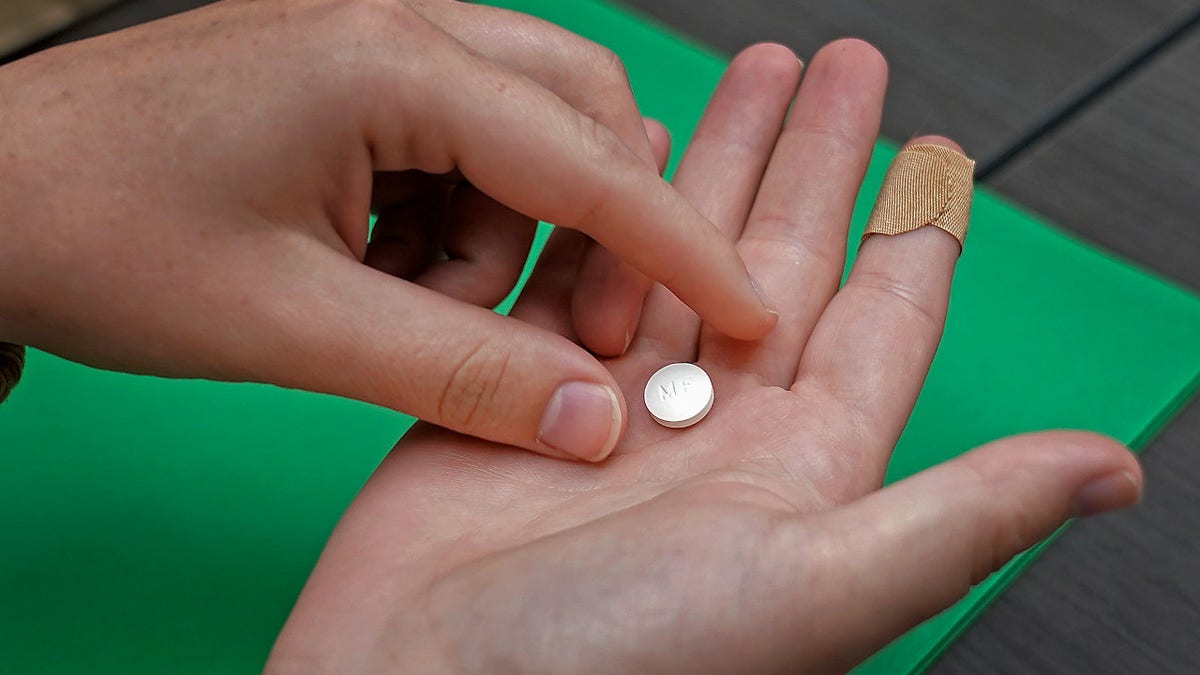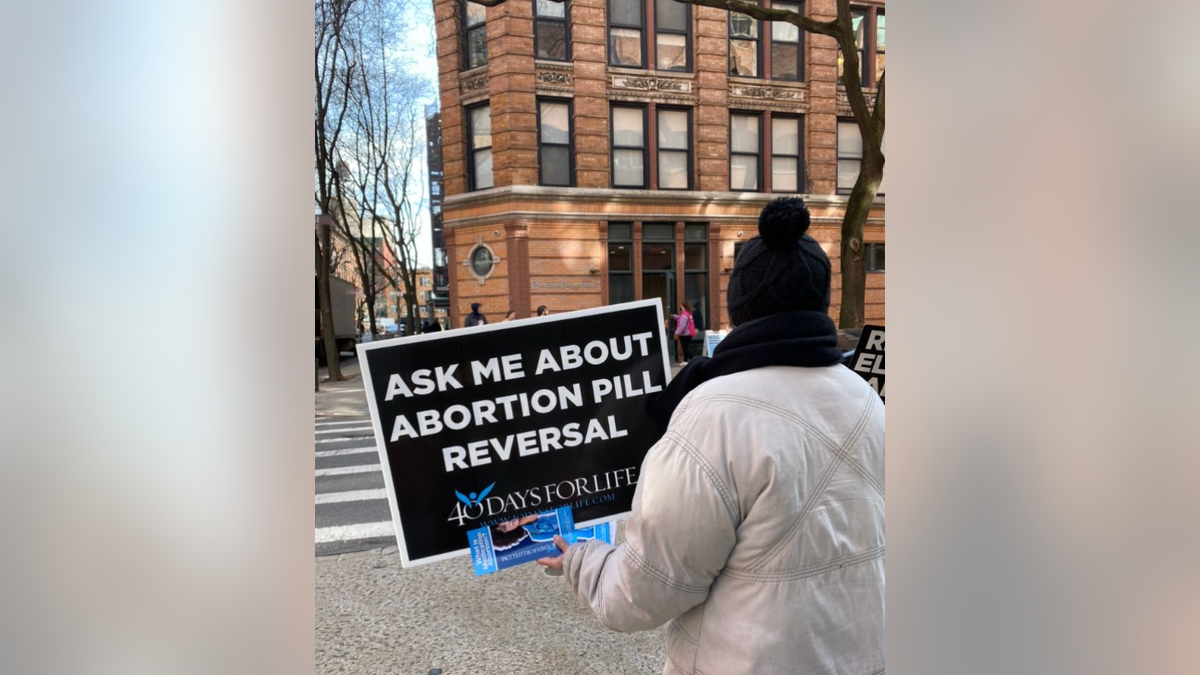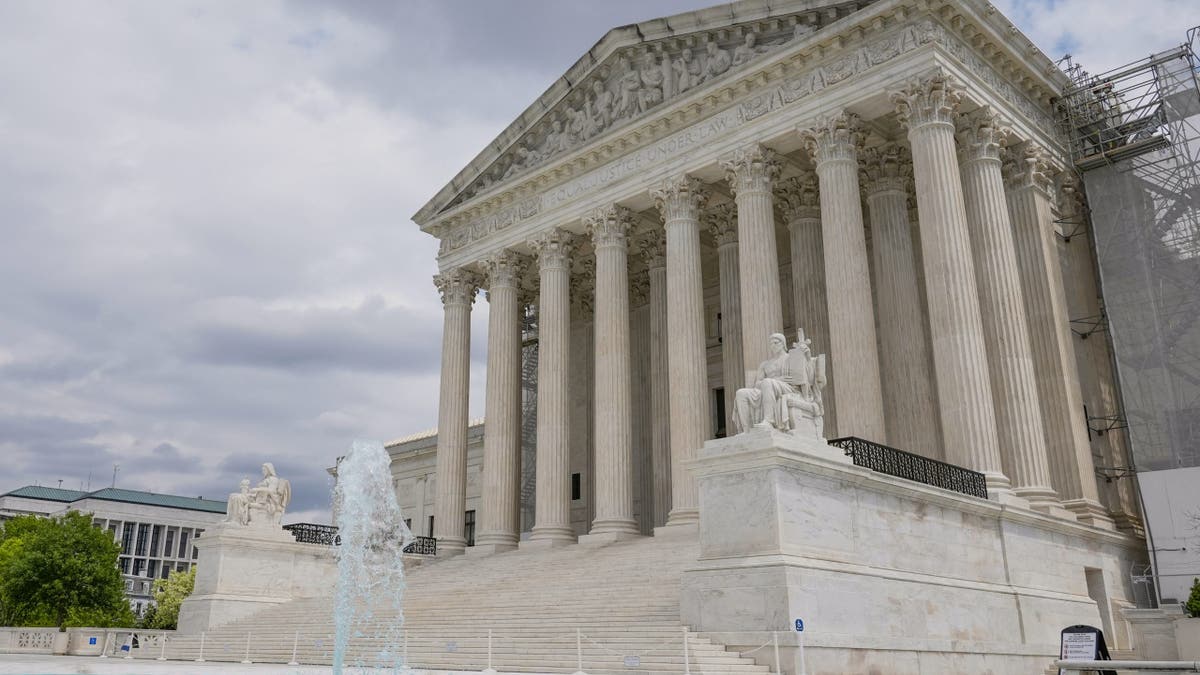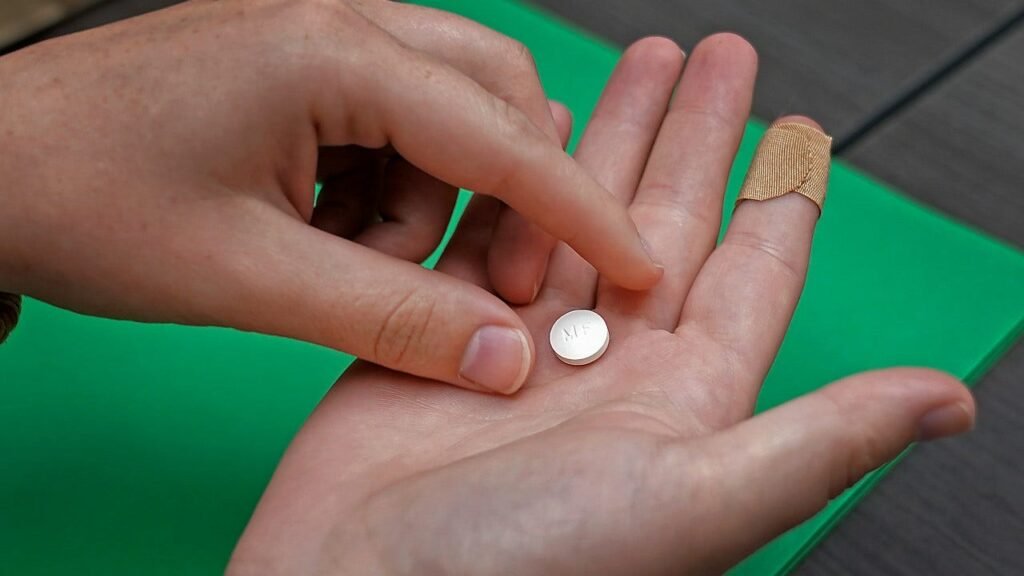A new study shows that many women may be surprised by the intensity of pain they feel during a chemical abortion.
The studypublished this week in the journal BMJ Sexual & Reproductive Health, surveyed women in the United Kingdom who had taken abortion pills to end a pregnancy and asked them about the pain they felt.
About half of those surveyed said the pain they felt was more than they expected. The majority of respondents (92%) rated their pain at least 4 out of 10 on the pain scale, while over 40% of respondents rated their pain as severe (8-10).
Abortion pills, also known as a chemical or medication abortioninclude a two-drug regimen of mifepristone and misoprostol taken to terminate a pregnancy. According to the Guttmacher Institute, these pills are the most common abortion method offered by U.S. providers, accounting for over 60% of all abortions nationwide.

FILE – A patient prepares to take the first of two combination pills, mifepristone, for a medication abortion during a visit to a clinic in Kansas City, Kansas, on Wednesday, Oct. 12, 2022. A law requiring doctors to disclose methods of withdrawing medication will not enforce induced abortions pending a court ruling. (AP Photo/Charlie Riedel, File)
Almost 1,600 women took part in the survey, most of whom were between 20 and 39 years old. About half of those surveyed said they had never given birth before.
Two-thirds of respondents said they would resort to abortion pills again in the future if necessary, but 13% of respondents said they would opt for a surgical abortion, with the majority of that group citing severe pain as a factor.
While some women felt the pain was no worse than period cramps, other women who took part in the survey described the pain as far worse than they expected. These women reported that the extent of their pain was “downplayed” or “glossed over” in the information they received from healthcare professionals before taking the pills.
“The pain was so much worse than period pain, it was like having contractions during labor. I gave birth three times and the pain really wasn’t all that different from this pain, the cramping pain of contractions,” one respondent said.

Abortion rights activists attend the “Rally for Our Freedom” to protect Floridians’ abortion rights in Orlando, Florida. (Chandan Khanna/AFP via Getty) (CHANDAN KHANNA / AFP)
CLICK HERE FOR THE LATEST MEDIA AND CULTURE NEWS
The researchers concluded that patients needed to be given “accurate, realistic information about pain” in order to manage it and support “informed consent to choose the abortion method.”
“Women want more detailed, realistic information to make decisions about treatment and to be prepared to have a medical abortion if they wish,” wrote lead study author Hannah McCulloh. “And medical abortion is a very safe and effective choice. This assessment led us at BPAS to create new patient materials and provide additional staff training, which we are currently evaluating.”
Pro-life activist Abby JohnsonA former Planned Parenthood director who now helps women exit the abortion industry said the new study revealed a truth about chemical abortions that isn’t often talked about.
“It’s time for a study like this to be published because women are not being told the truth about what happens during a medication abortion or about the true extent of the pain they may feel,” Johnson said in one Press release.

A pro-life advocate holds up a sign calling for the abolition of the abortion pill. (40 days for life)
“I hope they will realize that they were never told the truth about their medication abortion and that, unfortunately, their desperation was viewed by the abortion industry as a money-maker. That’s definitely how I felt when I was given the abortion pills and sent on my medication.” “I met in a cheerful way, only to find out later how horrible it was what a medication abortion looked like ” she added.
CLICK HERE FOR THE FOX NEWS APP
The abortion pill was first approved for use in the United States in 2000 by the U.S. Food and Drug Administration (FDA) and can be administered there first 10 weeks of pregnancy.
In June, the Supreme Court ruled against a challenge to the FDA’s regulatory approval process for mifepristone filed by a group of pro-life physicians and medical groups.
Lower courts concluded that the federal agency did not fully consider the potential health risks to women when revising regulations for mifepristone starting in 2016. These revisions – last updated in 2023 – include a reduction in the recommended dose, allowing the use of the drug up to the 10th week of pregnancy (from seven weeks), approval of a generic version and permission to send it by mail (thereby personal doctor visits are no longer necessary), among other things.

The U.S. Supreme Court building in Washington, DC (AP Photo/Mariam Zuhaib) (AP photo)
The Biden administration and the manufacturer of mifepristone asked the court to overturn an appeals ruling that would block access to the drug by mail and impose other restrictions, even in states where abortion remains legal.
With a win for them Biden administration and abortion rights advocates, the Supreme Court upheld access to the abortion pill and ruled unanimously that FDA challengers had no standing to sue the government.
Fox News’ Brianna Herlihy and Melissa Rudy contributed to this report.





